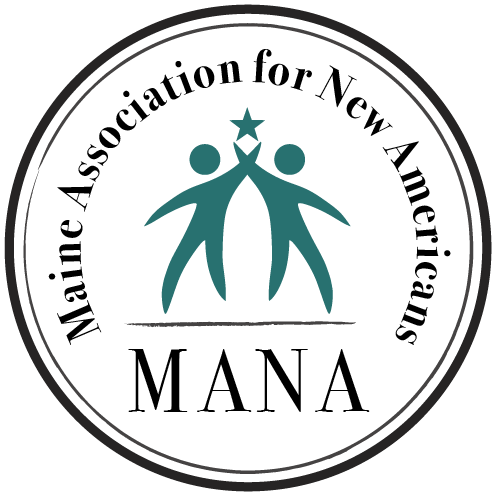Welcoming the Stranger
MANA’s Welcoming the Stranger Program matches volunteers with asylum seeking individuals or families, to provide a warm welcome to the Greater Portland community.
History of the Welcoming the Stranger Program
Welcoming the Stranger (WTS) was started as a grass-roots project in the spring of 2015. Maine was seeing the arrival of many asylum-seekers, mostly from central African countries like Burundi, Rwanda, Angola and the Democratic Republic of Congo (DRC).
A group of Portland residents came together to see how they could help welcome the new neighbors. They were mostly Jewish people for whom the plight of today’s asylum-seekers particularly resonated, due to their own personal links to the Holocaust or because the stories of the asylum-seekers profoundly mirrored the Jewish history of oppression, flight and forced reinvention.
The concept of “welcoming the stranger” is a well-known aspect of the Jewish tradition. This small group decided to help people one-on-one with whatever small or large issues confronted them.
Focusing on daily tasks meant volunteers didn’t have to be experts at anything but could simply be a much-needed friend offering support.
WTS’s goal was to formalize friendships between local volunteers (individuals or families) and asylum-seeking individuals or families to help them settle in to life in our community.
The project formed under the fiscal sponsorship of Temple Beth El, though it was a secular project. The first mentor matches were made in May of 2016, and the number of mentoring friendships gradually grew. By the end of 2017 there were 120 mentoring partnerships – and growing. For several years, it ran entirely on volunteer power, then added a quarter-time coordinator as the first paid position in 2019.
The Move To MANA
By 2021, the program had grown but remained very flexible and mostly unstructured, with each matched pair defining their own unique relationship, and it remained a loosely-defined project but not an organization. As we emerged from the early shock of COVID, the leadership worked to find a role within a new normal, and took an opportunity to reexamine the program.
The Steering Committee recognized a need for some more structure, a nonprofit status, and immigrant leadership. They embarked on a strategic planning process which included collecting feedback from program participants, guided by Integrative Inquiry. This culminated in a decision to gift the entire program to an existing nonprofit with a compatible mission.
After leaders met with several partners, MANA emerged as the best fit, and WTS officially became a program of MANA in spring of 2022. Amjambo wrote about the collaboration here.
Now one of three programs in the MANA family, Welcoming the Stranger remains flexible, low-barrier and powered largely by volunteers; but we’re able to provide more direct communication and support to program participants with help from the MANA’s team, who represent a diversity of languages, backgrounds, and experiences.
If you’re interested in joining our program, visit here to learn more about us and fill out an application!








